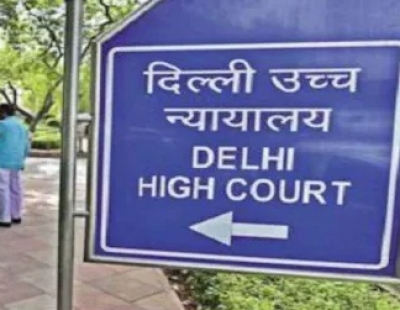New Delhi, March 16 (IANS) The Delhi High Court has come across a case of forgery involving a lawyer appointed to assist undertrial prisoners.
The lawyer has allegedly created and circulated a fake bail order, which was purportedly never issued by the high court.
This incident has prompted the high court to order the lodging of a police complaint to investigate the matter thoroughly.
Justice Swarana Kanta Sharma, upon learning about the incident, initiated a suo motu case.
The court was informed that a fabricated bail order had been given to an accused by the lawyer, which was then handed over to the accused’s mother during a jail visit.
The court expressed shock and concern over the incident, stressing the gravity of forging a judicial document and the implications it could have on the integrity of the legal system.
To address this egregious breach of trust and potential criminal act, the court has directed its Registrar General to file a complaint with the police for immediate investigation.
Justice Sharma’s order came after Saira Bano, the mother of the inmate, approached the high court seeking clarity on the status of her daughter’s bail application, only to reveal the existence of the forged document.
The document in question falsely claimed that a bail application was reserved for order by the high court on November 18, 2023, raising immediate suspicions as the court does not operate on weekends.
Further scrutiny revealed no record of such a bail application ever being filed or reserved for order, confirming the document’s fraudulent nature.
The high court has now taken significant steps to prevent such incidents from occurring in the future.
It has issued procedures for verifying the authenticity of its orders and judgements, stressing the use of QR codes, digital signatures, and official emblems on documents obtained from the Delhi High Court’s website.
The court has made it clear that authentic documents can be accessed freely and without cost, providing a reliable means for individuals to verify the legitimacy of judicial orders.
In addition to ordering a police investigation, Justice Sharma appointed advocate Harsh Prabhakar as amicus curiae to assist the affected inmate, ensuring that she receives proper legal representation moving forward.
The court has also taken proactive measures to educate the public and inmates about verifying court documents, including translating its order into Hindi and disseminating it widely.

